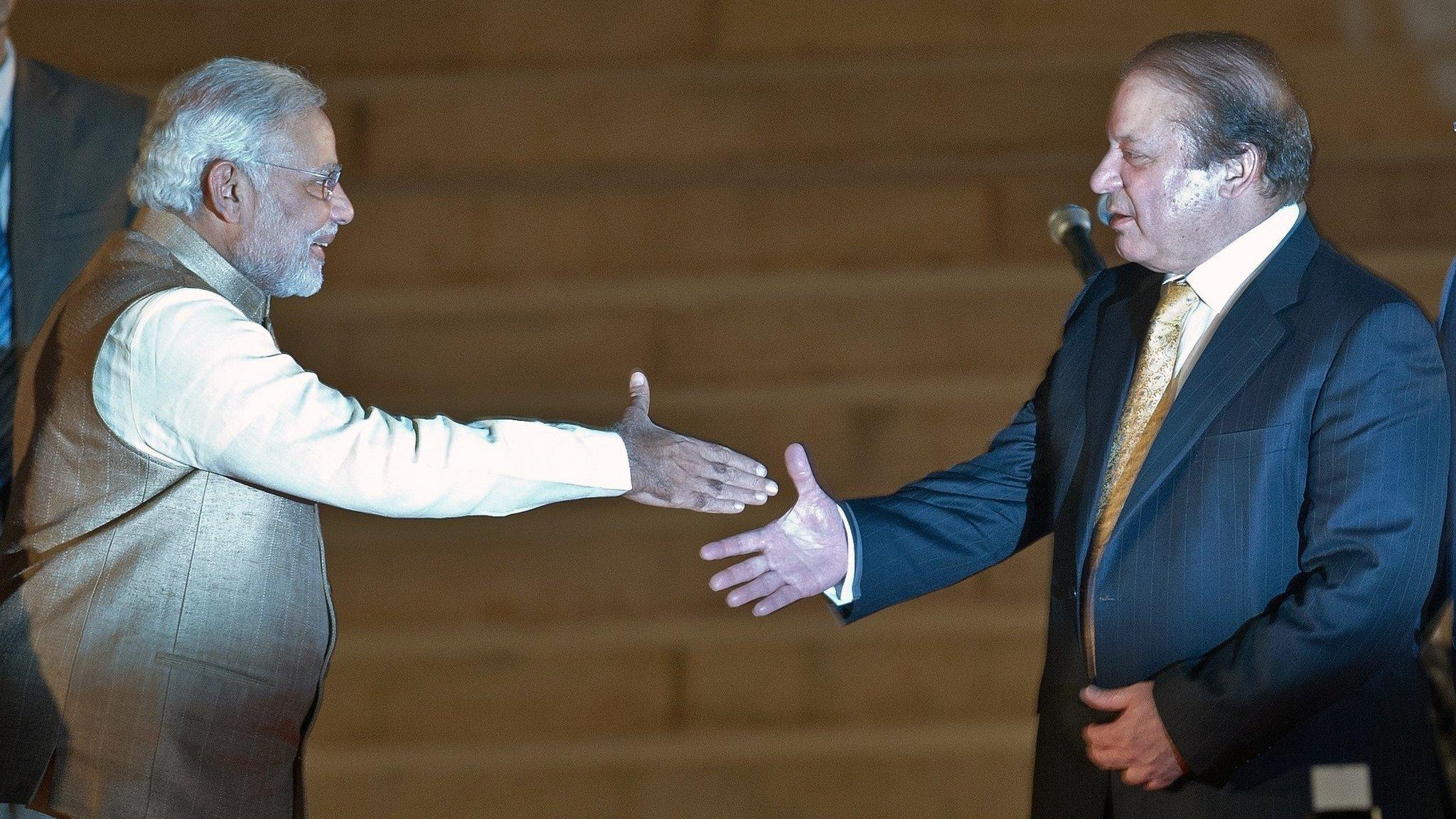Pathankot attack: Pakistan says arrests Jaish-e-Mohammad militants
- Published
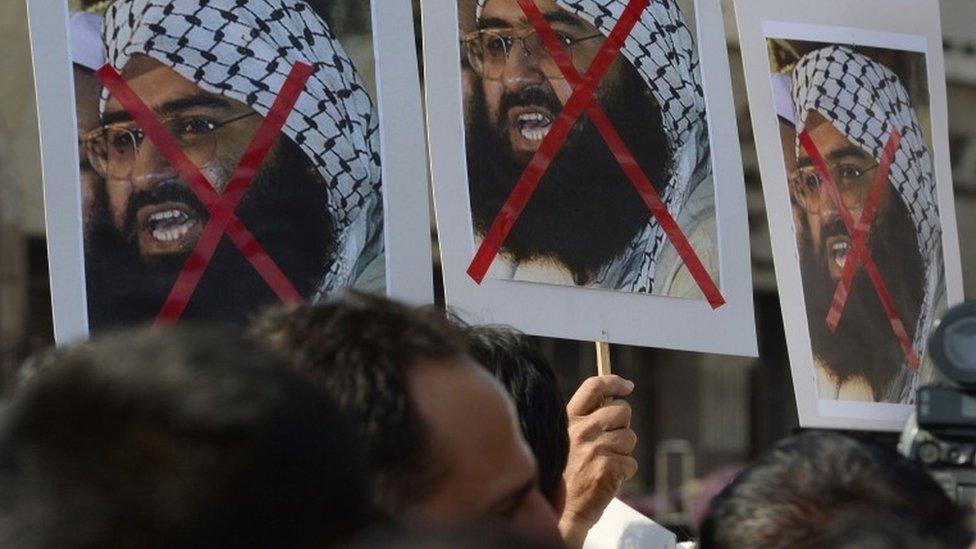
Indian security officials say they believe that Pakistan-based Islamist militant group Jaish-e-Mohammad was behind the Pathankot attack
Pakistan has said it has arrested several militants from Jaish-e-Mohammad, the group India believes was behind the recent deadly assault on the Pathankot air base.
Islamabad said it was also considering sending a team to Pathankot to investigate the four-day attack.
Seven Indian troops and six militants were killed in the gun battle.
The arrests are being seen as an attempt to salvage a fledgling peace process between the neighbours.
Hopes for Delhi-Islamabad detente were raised in late December after Indian Prime Minister Narendra Modi paid an unexpected visit to his counterpart Nawaz Sharif on his way back from Afghanistan, and the two sides announced plans to resume peace talks. The attack has set back the peace initiative.
"Based on the initial investigations in Pakistan, and the information provided, several individuals belonging to Jaish-e-Mohammad have been apprehended," Prime Minister Nawaz Sharif said in a statement on Wednesday.
"The offices of the organisation are also being traced and sealed," he added.
The statement gives no names or the number of Jaish-e-Mohammad men arrested, or any details of how they were linked to the Pathankot attack, so it is difficult to say how serious a move it is, says the BBC's M Ilyas Khan in Islamabad.
Until now, no action has been reported against the group's two major seminaries in Bahawalpur which, many say, serve as the group's headquarters.
There's a sense that some low-level operatives of the group may have been picked up - this is likely to deflect international criticism in the short run, and may save the upcoming talks, our correspondent adds.
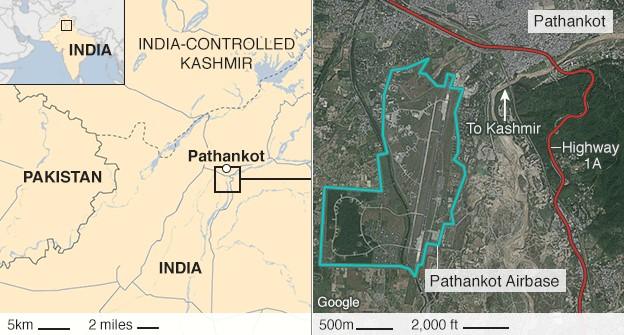
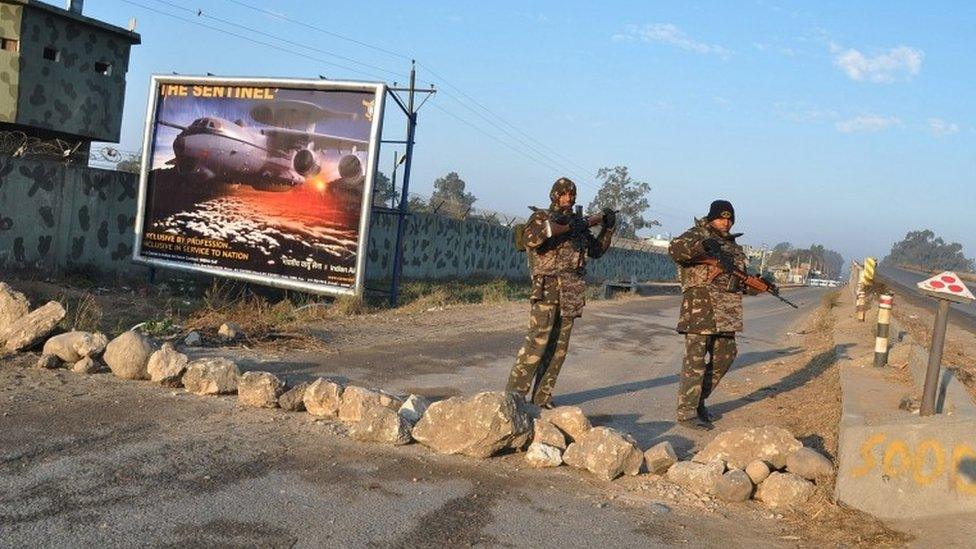
The Pathankot air force base extends over about 1,200 hectares
After the four-day raid, India said planned talks between the two countries' foreign secretaries would go ahead only if Islamabad acted against the attackers.
Although India has never officially announced any dates, media reports had said the meeting was due to take place on 14-15 January in Islamabad.
Following Wednesday's announcement of arrests, media reports, quoting official sources, said the talks were likely to go ahead, but could be delayed.
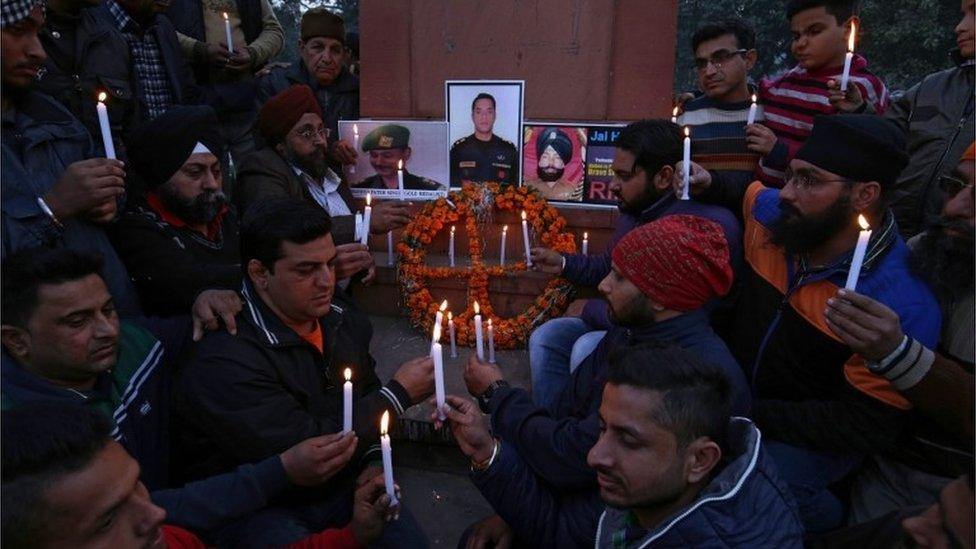
Seven Indian soldiers were killed in the attack
The assault on the Pathankot base in Punjab, close to the Pakistan border, started on 2 January, when a group of gunmen - wearing Indian army uniforms - entered residential quarters on the air base.
The United Jihad Council - a coalition of more than a dozen militant groups fighting against Indian rule in Kashmir - claimed the attack.
The claim was met with scepticism - the UJC's core members are not known to have mounted attacks outside Indian-administered Kashmir.
Indian security officials instead blamed Jaish-e-Mohammed, an Islamist militant group based in Pakistan.
Started by Muslim cleric Maulana Masood Azhar, Jaish-e-Mohammed has been blamed for attacks on Indian soil in the past, including one in 2001 on parliament in Delhi which took the nuclear-armed rivals to the brink of war.
- Published7 January 2016
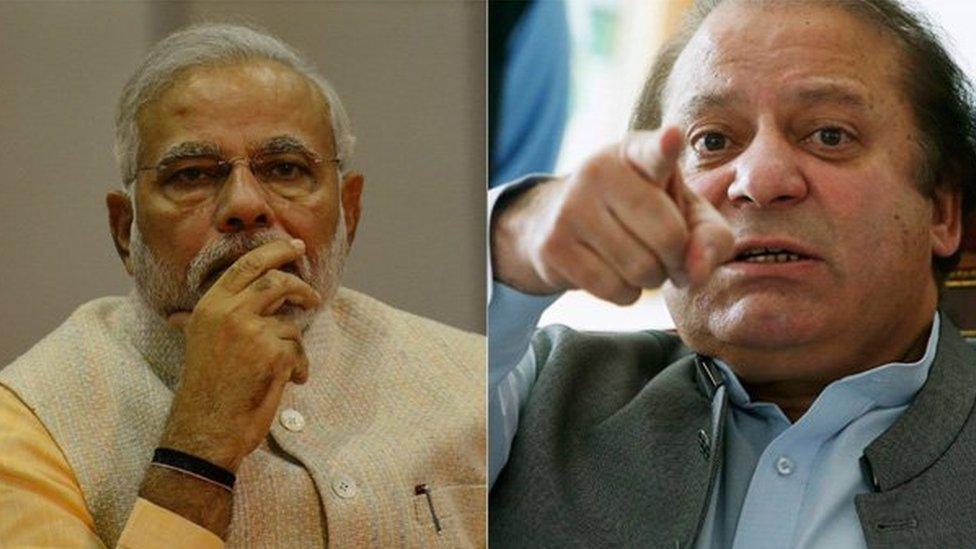
- Published6 January 2016
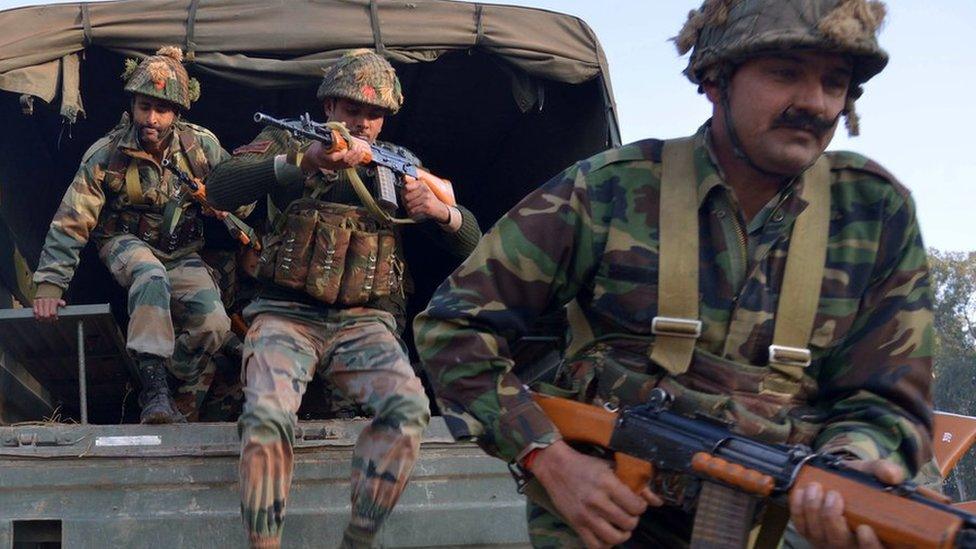
- Published4 January 2016
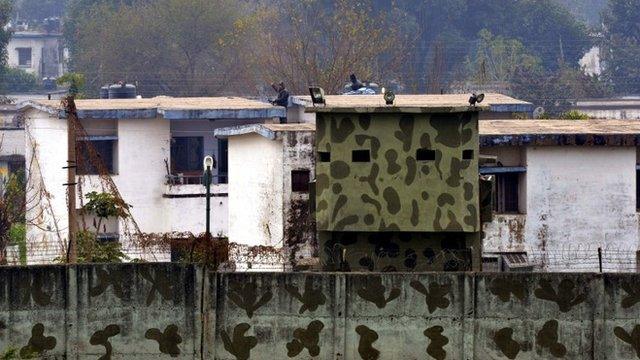
- Published25 December 2015
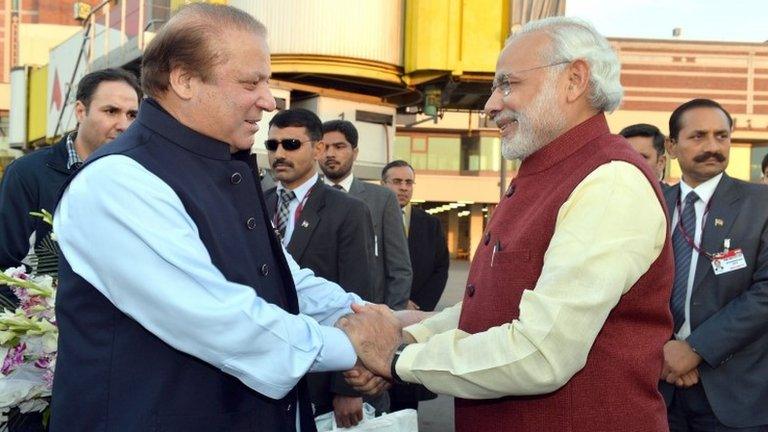
- Published27 July 2015
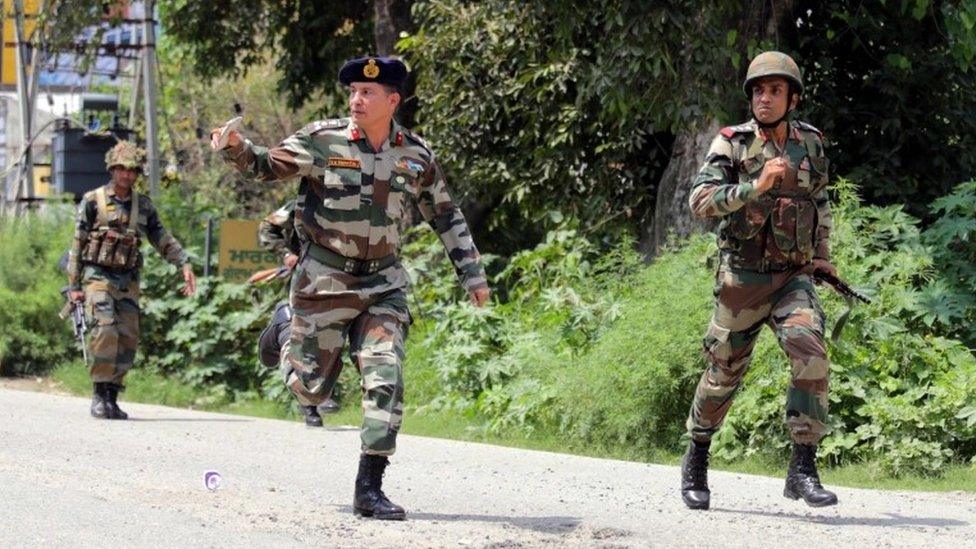
- Published5 October 2015
